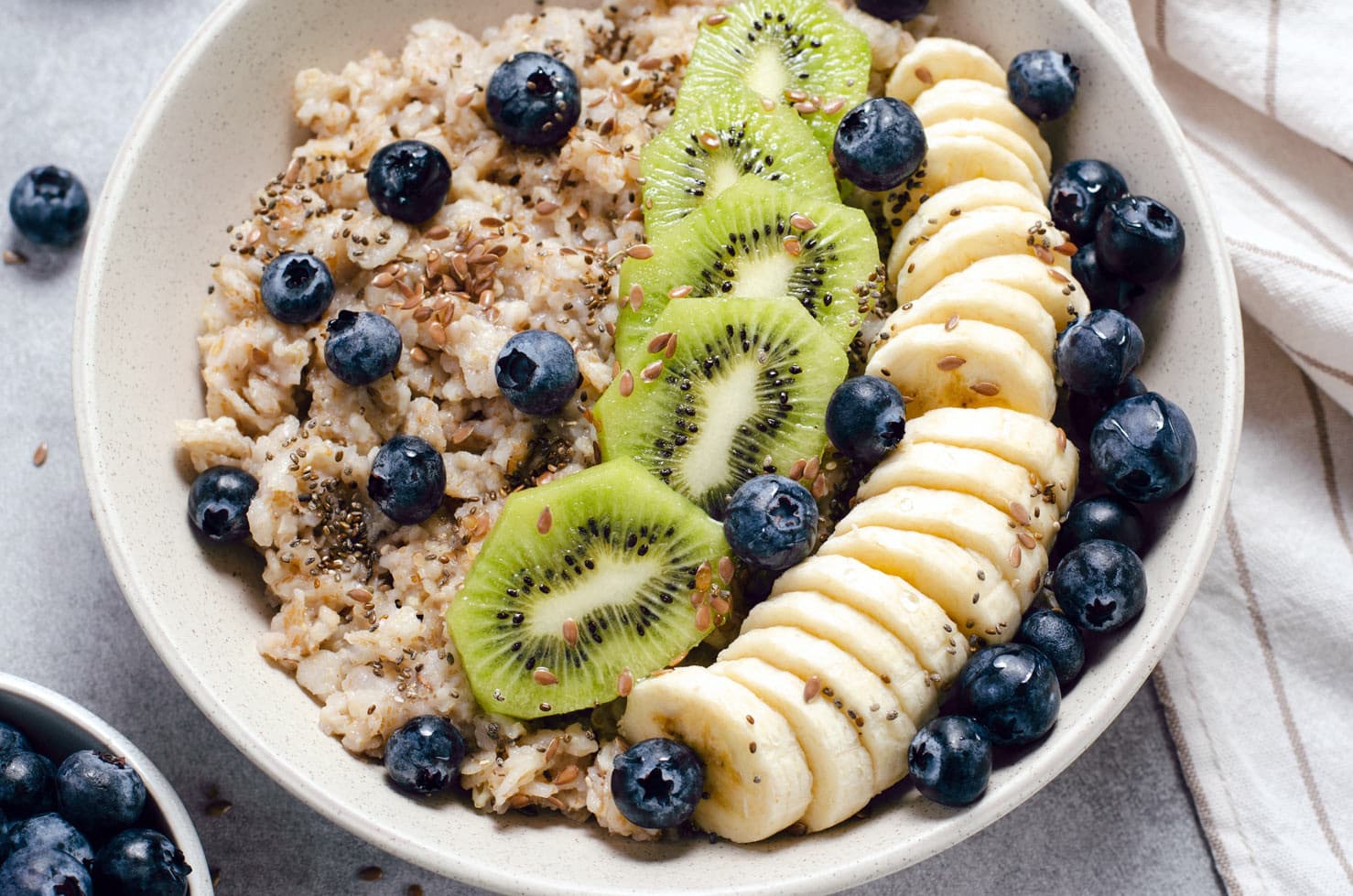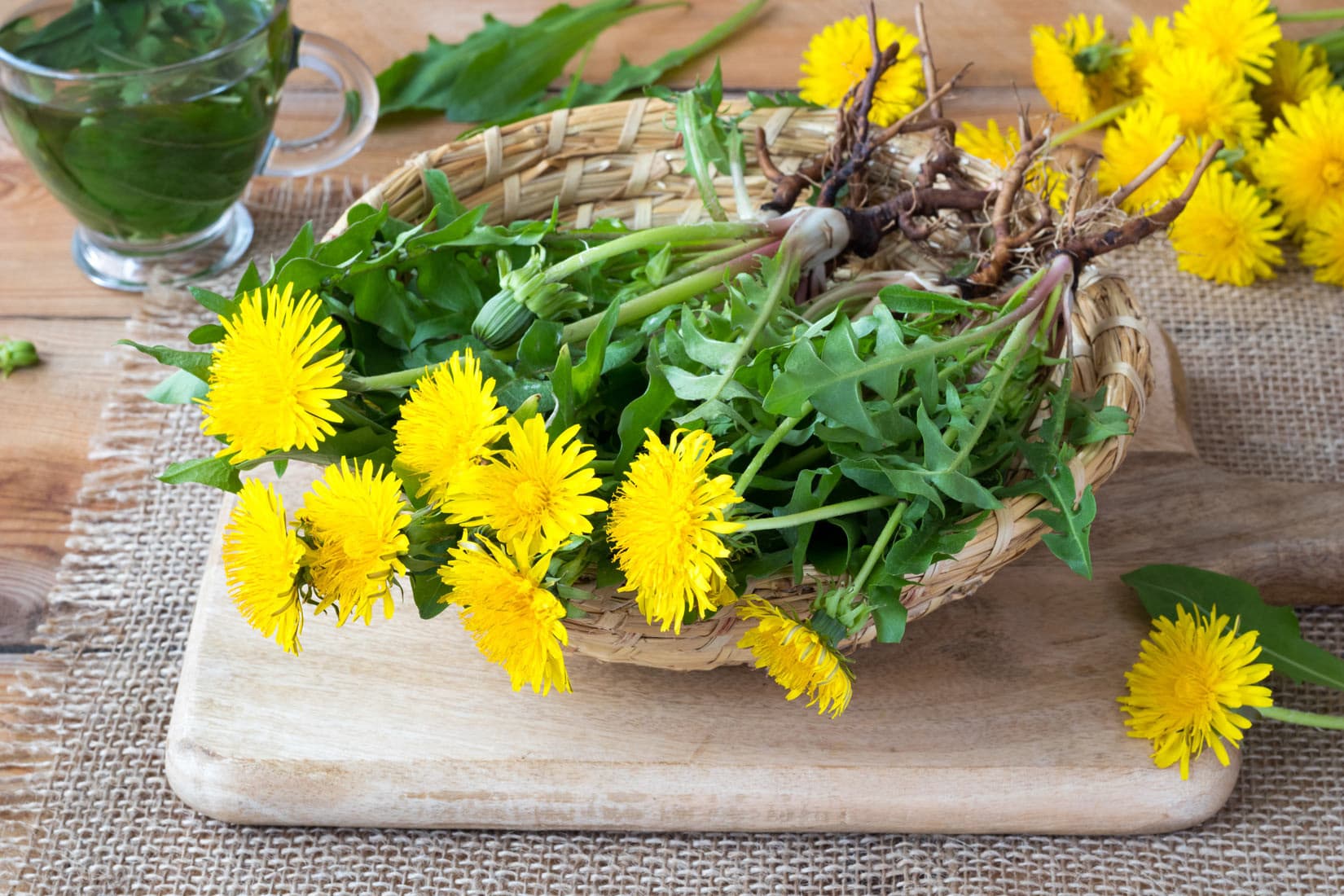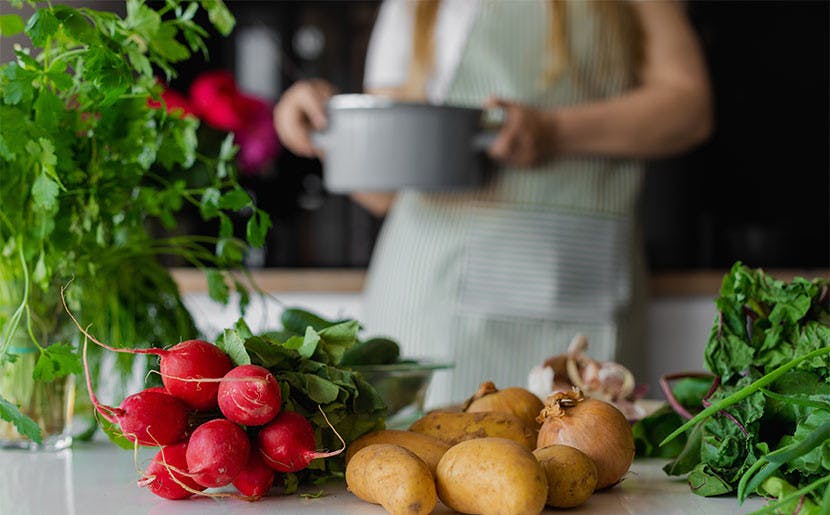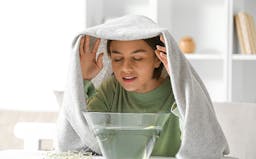DIY Blood Detox
Article by:
Tammie Burak | Wendy Goubej |
13 min read
The life of the flesh is in the blood. Leviticus 17:11
Blood serves various functions including transporting nutrients and oxygen to the cells, and moving waste products to the excretory organs. Optimal functioning of the individual cells, organs, and the body as a whole depends on the blood. This is why health conditions and diseases that affect the blood invariably affect all the organs in the body.
The liver, kidneys, and lymphatic vessels are the organs which do the work of detoxifying, or cleansing the blood, by removing toxins and impurities. Supporting these organs nutritionally will impact the health of the blood.
Making Poor Blood
What condition is your blood in? Is it clean, well-oxygenated, well-nourished and healthy? Or is it loaded with toxins, oxygen-depleted, undernourished, and unhealthy? Poor diet, alcohol, medication, stress, and many other factors can produce unhealthy blood that is burdened with toxins. Overall poor health of the body and its organs also generates large amounts of unwanted toxins in the blood. How can you know if you need a blood detox?
Signs You Need to Detox

Symptoms of too much toxin in the blood include:
- low immunity,
- headaches,
- fatigue,
- skin problems,
- moodswings,
- muscle pains and spasms,
- overheating, and
- obesity.
Toxic Blood
Toxins in your blood disrupt the functions of the internal organs and cause them to underperform. The development of symptoms similar to allergies, along with low immunity, headaches, fatigue, skin problems, and obesity all point to high levels of toxins in the blood. In general, toxins can be grouped according to their origin:
- External toxins are those created outside the body and then absorbed into the tissues. For example, polluted water, automobile exhaust, polluted air, or chemicals in skin-care products and household products.
- Ingested toxins can be found in food or drink we consume. An example is pesticide residues on our food.
- Internal toxins include viral, bacterial, or fungal infections (eg., candidiasis) that produce toxins within our bodies. Certain hormones released during times of stress are in this category, too.
Organs That Filter Blood and Remove Waste
The body uses several internal organs such as the liver, intestines, skin, kidneys, lungs, and even lymph nodes to remove different toxins from our body. In addition, antioxidants play an important role in detoxification.
Liver
Among the more than 500 functions performed by the liver is the job of filtering blood as it leaves the stomach and intestines. The liver metabolizes drugs and breaks down harmful chemicals so they can be safely removed from the body. It also makes nutrients available from the foods we eat, sending them into the bloodstream. To keep the liver functioning at its peak, eliminate alcohol. Alcohol, which is processed by the liver, kills liver cells. Also harmful to the liver are refined sugar, acetaminophen, and heat-damaged fats.
Intestines
Digestive juice, bile, and pancreatic fluid mix in the small intestine to digest the different components of food. Bacteria in the small and large intestines also play an important role in ensuring complete digestion. Waste products from the liver exit the body through the intestinal tract. Eating at well-spaced intervals to allow complete digestion, consuming plenty of plant foods which provide fiber, and drinking lots of water all aid in removal of wastes via the intestines.
Skin
Sweat glands in the skin collect and excrete blood wastes such as urea, the end product of protein breakdown. As proteins are metabolized, ammonia is formed which must be converted to urea by the liver. Most of the urea is removed from the body via the kidneys, but some is sweated out through the pores in our skin. Help the skin to do its job by keeping it clean.

Kidneys
Healthy kidneys filter about 120 ml or ½ cup of blood every minute. Waste products pass into the bladder in urine. The kidneys also make hormones that regulate blood pressure and are involved in red blood cell production. Over the counter pain medications like ibuprofen and acetaminophen can lead to decreased blood flow and oxygen to the kidneys which can damage the kidneys. Drinking plenty of water and excluding alcohol and caffeine from the diet can help the kidneys function optimally.
Lungs
Each time you exhale, your body eliminates carbon dioxide, a toxic by-product of changing food into energy. This is crucial because dissolved carbon dioxide in the blood affects blood pH, making it more acidic. Exercise and deep-breathing help the lungs rid the body of excess carbon dioxide.
Lymph
Our cells are bathed in lymph fluid, a colorless, odorless liquid that brings nutrients to the cells and carries away toxins. The lymphatic system is part of the immune system which defends the body against infections. Exercise is essential in keeping the lymph system active since it does not have its own circulatory system. While the blood has the heart to pump it through the body, lymph fluid relies upon the physical movement of the body in exercise.
As muscles contract and relax during exercise, lymph fluid is pulled through the system. A sedentary lifestyle can result in lymph nodules jammed full of toxic debris. Regular exercise prevents toxins from building up and causing a sluggish immune system which is prone to disease. Bouncing on a mini trampoline is an effective way to get your lymph fluid moving.
What are antioxidants?
Oxidation is what happens when metal rusts. Inside the body, oxidation causes damage to cells. An antioxidant is simply a molecule that prevents another molecule from being damaged through oxidation. Since there are many processes in the body which result in oxidation, the intake of antioxidants is essential to counteract some of the negative results of the build-up of too many toxic, oxidized molecules in the body.
Vitamins such as B2, C, and E, and other substances such as beta-carotene and bioflavonoids, are all antioxidants. The best way to ensure our body is getting adequate vitamins and antioxidants is to eat a wide variety of fresh, colorful plant foods.
Blood Detox and Rejuvenation
Detoxifying your blood will result in better overall organ function. Blood detox and rejuvenation starts from the bottom up. It can seem like a long process when you are looking for information and working to improve your health. Unraveling the mysteries of unwellness and changing bad habits can be challenging. However, going back to the basics and purifying your blood naturally is really a very simple and easy option with many side benefits.
Add Fiber
Think of dietary fiber as a waste removal vehicle. Fiber, found only in plant foods, aids the movement of bile and toxins out of your system. The human body can’t digest dietary fiber, but it is an essential part of a healthy diet. Dietary fiber provides bulk to your diet, which will help you feel full thereby aiding in weight control. And, according to the Mayo Clinic, fiber lowers your risk of diabetes and heart disease.

Adding fiber in the form of whole grains and fruits and vegetables is a quick and easy way to cleanse and build your blood. Whole plant foods are also loaded with antioxidants and nutrients to protect and nourish your blood.
Blood Cleansing foods
The following foods are particularly good for the blood. Try to incorporate them regularly into your diet.
| alfalfa sprouts | algae | apples |
| apricots | artichokes | avacados |
| barley | beans | beets |
| button mushrooms | cabbage | celery |
| corn | dandelion leaf | dark leafy greens (such as spinach) |
| dates | dong quai | figs |
| grapes | kelp | loganberry |
| mulberry | oats | pollen supplements |
| rice | shiitake mushrooms | soymilk |
| watercress | wheat bran | wheatgrass |
Incorporating these foods and other detoxifying foods and juices into a family meal is a delicious, easy way to cleanse and give nutrients to your blood.
Blood Cleansers
If you are experiencing signs that your blood is unhealthy, such as headaches, skin problems, fatigue, obesity, etc, here are some especially helpful natural blood cleansers to try.
Blood tonic
Juicing organic black grapes and mixing the juice with homemade nut milk (made from almonds, walnuts, macadamia nuts, etc.) will provide blood building, tissue cleansing nutrition. Try having one eight ounce glass of this mixture mid-morning and mid-afternoon for best results. This tonic is especially helpful for cleansing mucus from the system.
Dandelion
Dandelion also promotes blood building. You can use all parts of the plant in green drinks and salads. Dandelion is high in calcium and contains all the nutritive salts to restore and balance the blood. Eating dandelion can help prevent or reverse anemia by supplying necessary blood salts or minerals. It also helps with low blood pressure, low energy, and can help maximize endurance.
Dandelion can help break down the acid waste products that build up in the blood during rapid weight loss. Bitter herbs like dandelion cleanse the liver by increasing its activity and the flow of bile into the intestines. It is also helpful in treating hepatitis, increases activity of the pancreas and spleen, helps open urinary passages, and helps treat skin diseases.

Red clover
Red clover has a long history of use as a blood purifier. It is a common “weed” growing in ditches and other sunny locations. Traditionally, its blossoms are dried and used to make tea.
The entire plant can be eaten. Try adding the three-lobed leaves and pretty flowers to a tossed salad. Red clover increases mucus production and thins mucus in the respiratory system. This aids the body in throwing off toxins via the lungs and nasal passages.
Chaparral
Chaparral is renowned for its blood purification ability and is sometimes referred to as “nature’s detergent.” Chaparral, or creosote bush, grows in dry regions of southwestern United States and northern Mexico. Its leaves are dried and ground. The powder is then used to fill capsules or make tea. Chaparral can aid the body in ridding itself of environmental chemicals and some claim it’s helpful in speeding the removal of alcohol, nicotine, and other drugs from the system.
Blood Boosting Practices
There are a variety of ways to add blood cleansing foods to your diet. Are you ready to see improvements in how you look and feel? Power up your blood cleansing/rejuvenating efforts with these potent practices.
Juicing
By removing the fiber from fruits and vegetables, juicing provides your body with concentrated nutrients that can be absorbed quickly. Freshly made raw juice is rich in enzymes, substances found in raw fruit and vegetables that enable us to digest food and absorb it into our blood. Drinking fresh juices provides swift nourishment of the cells and tissues in the body.
Raw foods
Another way to incorporate blood-building foods is by using variations of the raw food diet. Going 100% raw may seem too difficult if you’ve never tried it before, but you could try increasing the amount of raw food that you eat to 80% and reducing the amount of cooked food you consume to 20% of your diet. This can be as simple as having raw fruit and a piece of toast for breakfast and a large salad with a vegan burger patty for supper. A vegan diet is also effective in promoting healthy blood.
Raw foods provide enzymes for their own digestion so your body doesn’t have to create them. Instead, the enzymes the body creates can be put to work repairing damaged cells and tissues. Enzymes are an important part of the body’s God-given ability to heal itself.

Juice fasting
If you are trying to lose weight, a juice cleanse can be useful. Many of the toxins we are exposed to daily through the food we eat and the air we breathe are stored away in our fat. As your body burns fat molecules, stored toxins are released into your bloodstream.
A cleanse can help remove those released toxins quickly and can even help you lose weight more efficiently. Be sure to drink plenty of water while cleansing to ensure toxins are speedily removed from your system.
The pursuit of health is always a rewarding endeavor, whether you are attempting to cleanse your blood, detoxify your body, lose weight, or improve a dermatological condition. It is our hope that the information in this article will inspire you to try natural methods to improve your health.
If you are looking for more ideas, check out our recipes or browse our many helpful articles.
These statements have not been evaluated by the Food and Drug Administration or Health Canada. Our articles, videos and products are not intended to diagnose, treat, cure, or prevent any disease. If you are pregnant, nursing, taking medication, or have a medical condition, consult your physician before following any recommendations or using any product on our site. You assume sole responsibility for your personal health, and you must use your own discretion under doctor consultation to determine whether any product or recommendation on this site is suitable for your personal situation.








